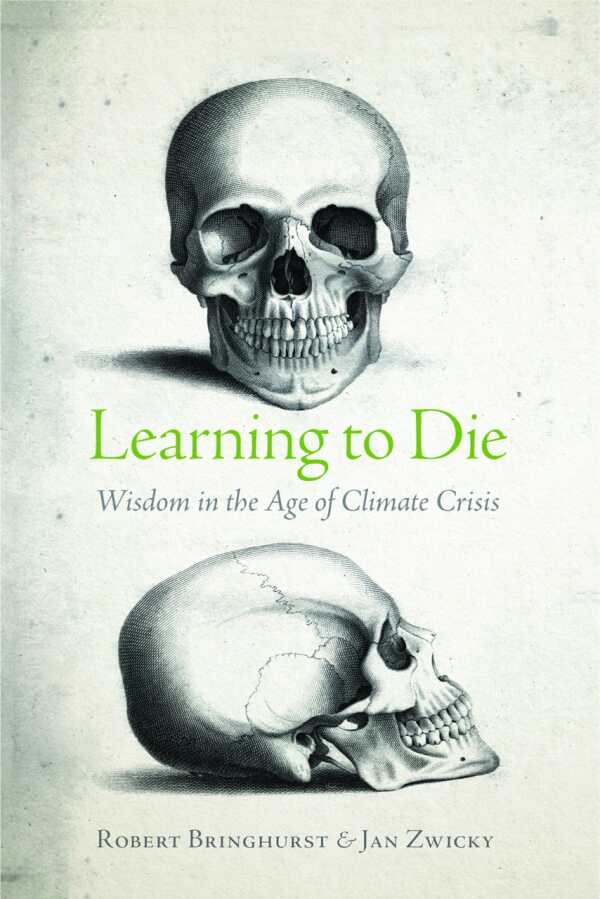Learning to Die
Wisdom in the Age of Climate Crisis
- 2018 INDIES Finalist
- Finalist, Ecology & Environment (Adult Nonfiction)
This short book, comprised of a lecture by Robert Bringhurst and an essay by Jan Zwicky, addresses the finite limitations of humanity in a scholarly fashion. Bringhurst begins with an impassioned discussion of the meaning of the wild, which “is not a portfolio of resources for us or our species to buy and sell or manage or squander as we please. The wild is earth living its life to the full.”
Human culture, says Bringhurst, has been “increasingly toxic to the wild,” despite the fact that the existence of human beings on the earth has been relatively short. As a result, “it’s more important than ever before that we learn to think like an ecosystem, not like a spoiled brat or a biological singularity.” Referring to such important thinkers as Henry David Thoreau, Martin Luther King, Jr., and Gandhi, Bringhurst makes an eloquent case for protecting, preserving, and appreciating the earth’s bounty, rather than squandering its riches.
Zwicky hearkens back to Socrates to demonstrate the need for humans to follow certain virtues, including “awareness coupled with humility regarding what one knows,” as well as courage, self-control, and compassion. Zwicky suggests that while governments may be unable to enact environmental justice, perhaps individuals could do so if they “live simply, with less, and offer more to charity.”
Still, she recognizes such actions will “not be enough.” Humanity may well be destined to perish in the future, but Zwicky encourages us to accept our fate with “the absence of fear and the refusal of despair.” While conveying her message in quite a different way from Bringhurst, Zwicky does reach the same conclusion. The two contrasting styles coalesce in a coauthored afterword.
Learning to Die is an intriguing, interpretive look at humanity and the earth that is worthy of careful consideration.
Reviewed by
Barry Silverstein
Disclosure: This article is not an endorsement, but a review. The publisher of this book provided free copies of the book to have their book reviewed by a professional reviewer. No fee was paid by the publisher for this review. Foreword Reviews only recommends books that we love. Foreword Magazine, Inc. is disclosing this in accordance with the Federal Trade Commission’s 16 CFR, Part 255.

